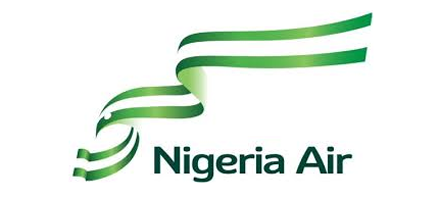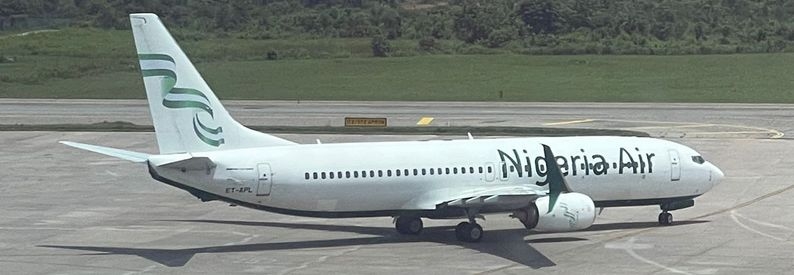Nigeria Air (Lagos) plans to launch in the fourth quarter this year with three B737-800s dry-leased from Ethiopian Airlines (ET, Addis Ababa International), which has been announced as the preferred bidder for a 49% strategic stake in the new national carrier.
This follows the announcement late on September 23 by Nigerian Aviation Minister Hadi Sirika that a consortium led by Ethiopian Airlines will invest USD300 million to grow the new national airline to 30 aircraft and an international operation within two years. The plan is for Nigeria Air to launch with a shuttle service between Abuja and Lagos before the end of 2022. Other domestic destinations will follow.
The outcome of the bidding process was widely expected. ch-aviation broke the news earlier this month after Ethiopian Airlines Chief Executive Mesfin Tasew Bekele disclosed the bid process was progressing in the carrier's favour.
Sirika said the consortium consists of Ethiopian Airlines with 49%, and three Nigerian investors, MRS Oil Nigeria, cargo handler SAHCO, and other Nigerian investors together holding 46%. The Federal Government of Nigeria (FGN) will retain 5%, meaning 51% will remain in Nigerian hands to comply with local effective ownership rules.
Sirika said the Ethiopian Airlines Consortium was the only bidder to have met the June 10, 2022, deadline for submission of bids under a Request for Proposal (RFP) process launched on March 5, 2022. “Few others attempted to submit but unfortunately could not meet the deadline. Since we did not collect the bids, we are not in a position to say who they are,” he said in a statement.
Still, the consortium was chosen after a “careful and detailed” selection process governed by the country’s Infrastructure Concession Regulatory Commission (ICRC). “The consortium has been subject to a due diligence process (completed on September 15, 2022), after which the contract will be negotiated between the consortium and the FGN, leading to a full business case, which will be expected to be approved by the Federal Executive Council (FEC). We expect this process to take six to eight weeks,” he said.
An interim executive team of aviation experts have been working since February 2022 to set up all the necessary regulatory and industry requirements to launch the national carrier.
On June 6, 2022, the Nigerian Civil Aviation Authority (NCAA) issued Nigeria Air's Air Transport License (ATL) after it had approved all interim executives in May 2022.
A “signature-ready” contract has been finalised with Ethiopian Airlines for three B737-800s with a configuration of 16 business class and 150 economy class seats. Ethiopian Airlines will provide the initial crews and engineers while Nigerian Air recruits flight- and cabin crews, plus aircraft engineers.
The first aircraft is ready to arrive in Abuja for inspection by the Nigerian Civil Aviation Authority (NCAA), demonstration flights and audit as part of certification requirements. In time, two more should arrive to complete the required three minimum.
Having identified the first three aircraft for the fleet, Nigeria Air will now finalise all necessary operations manuals and then go through the inspection and approval process for an air operator’s certificate (AOC) from the NCAA.
The FGN will be funding the certification process which is “well within" its 5% capital investment, while the Ethiopian Airlines Consortium will inject an overall share capital of around USD300 million to grow the airline to 30 aircraft and an international operation within the next two years. No further government funding will be provided above the 5% share capital.
During the RFP process, a data room for all the details of Nigeria Air, including the outline business case and the financial model, was established by a transaction advisor by March 15, 2022.
A bidders conference was held online on March 28, 2022, with more than 100 participants. More than 60 parties requested access to the data room.
By June 10, 2022, the Aviation Ministry had received one closed bid from the Ethiopian Airline Consortium, which was evaluated by a team of 11 experts. The technical bid had scored 89% out of 100% and the financial proposal 15 out of 20, giving it a combined score of 86.7%.
The next steps expected to be concluded by mid-November 2022 include:
- Contract negotiation between the preferred bidder and the FGN;
- Development of the full business case;
- Issuance of compliance certificate for the full business case by the ICRC;
- Approval of the full business case by the Federal Executive Council.

